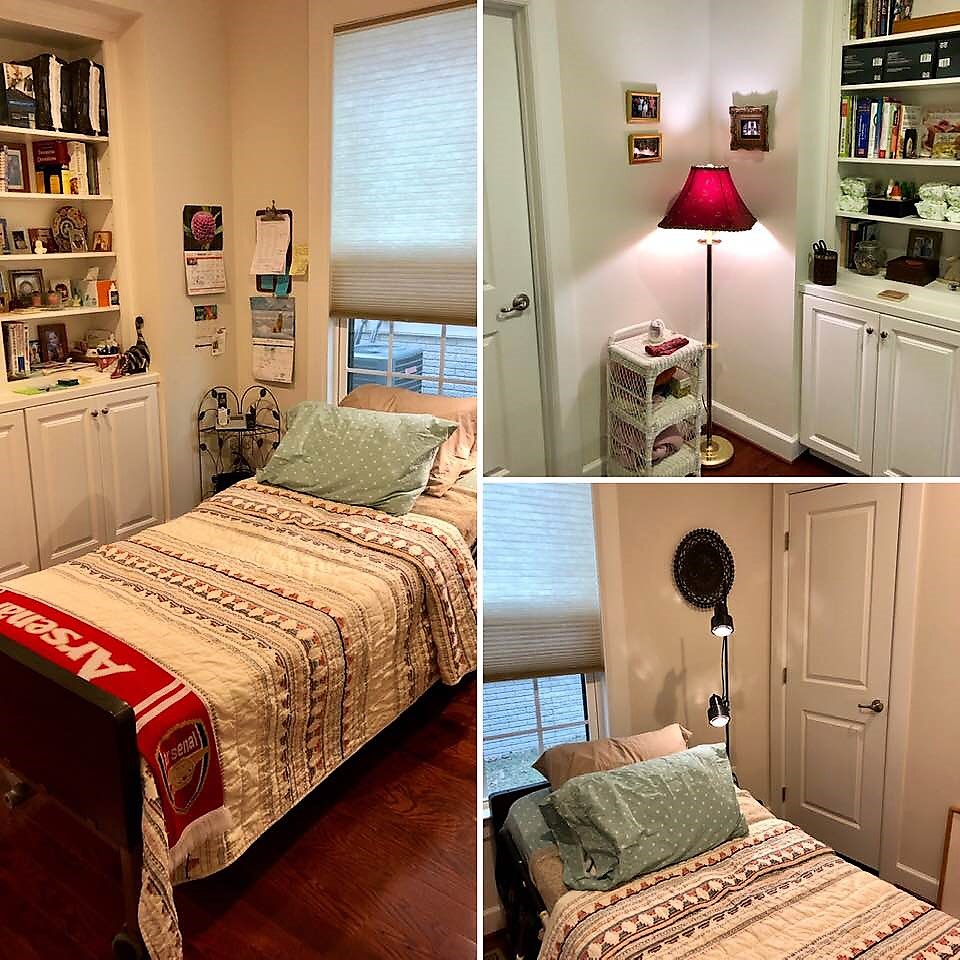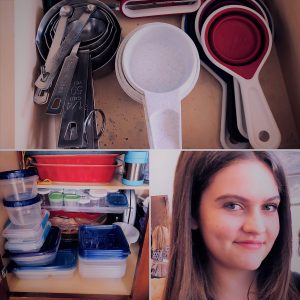 Have a caregiver in your family or a close friend who has suddenly become a caregiver for a loved one? Caring for a beloved caregiver can help that person and the person being cared for tremendously. I recently had the unexpected opportunity to do this and I was struck by the numerous ways a caregiver can be helped. Really things I hadn’t thought of until I was there observing the situation, making a to-do list and checking it all off, one by one. At times I was also reminded that some of the best care one can give to a caregiver is to listen, share tears and hugs and have some fun time carved out as well.
Have a caregiver in your family or a close friend who has suddenly become a caregiver for a loved one? Caring for a beloved caregiver can help that person and the person being cared for tremendously. I recently had the unexpected opportunity to do this and I was struck by the numerous ways a caregiver can be helped. Really things I hadn’t thought of until I was there observing the situation, making a to-do list and checking it all off, one by one. At times I was also reminded that some of the best care one can give to a caregiver is to listen, share tears and hugs and have some fun time carved out as well.
My caring for the caregiver took me 2,000 miles away from home for three weeks.  I went to Maryland to help my family member who has become a full-time caregiver to her husband, in what seems, almost overnight. Life can truly change on a dime. Even someone with slowly declining health can suddenly take a turn and require full-time-around-the-clock caregiving. The loving job can be both fulfilling and heartbreaking at the same time. Watching my family in action both inspired and hurt my heart.
I went to Maryland to help my family member who has become a full-time caregiver to her husband, in what seems, almost overnight. Life can truly change on a dime. Even someone with slowly declining health can suddenly take a turn and require full-time-around-the-clock caregiving. The loving job can be both fulfilling and heartbreaking at the same time. Watching my family in action both inspired and hurt my heart.
I am thankful that I had the time and frequent flyer miles to take this trip.
If you can help, especially an older couple of need of caregiving support, here are some ways that help can be extended. Some of these ideas may surprise you…
*If appropriate, offer to sit in with the caregiver at medical and insurance meetings. If they politely decline, don’t ask twice and respect their privacy. However, if they welcome having a second set of ears present and an advocate, this can help tremendously since the caregiver may be exhausted, overwhelmed and intimated by the onslaught of information. Case in point, I was able to join my family member when she met with the director at the post-surgery rehab facility to discuss a home hospital bed for her loved one. Together, we looked at the options and worked with the director to have the forms filled out by the patient’s physical therapists. To our delightful surprise, we got word the next day that insurance would pay for the majority of the home bed. That was such welcome news. We weren’t quite done, though. When the medical supply company called to confirm delivery of the bed, they had down that a hand crank bed was coming. I had to persuade my family member to switch to a remote electrically powered bed for a few dollars more a month for ease for both her and her patient. I suggested she watch a YouTube demo of a crank bed versus an electric bed. Seeing that video was all it took and she switched to the better electric model. I had no idea, as I flew across the country to help, that I would get an education on hospital beds.
*Help the caregiver be up to speed with all the technological tools needed to navigate medical records, bills and claims into today’s 24-7 high-tech online world. To many older couples, this is daunting. And for many of these same couples, the spouse who becomes ill may have been doing all the home computer work leaving the newly caregiving partner feeling lost and afraid. The first thing we did here was to bring in the Geek Squad to get her back online. The main computer was moved downstairs for easy access for both the caregiver and her spouse. The Geek Squad agent also fixed the printer and made sure all was connected to the wireless signal in the home. Now this couple has access to a contact from the Geek Squad who can answer questions and make future repairs. With everything on one’s computer these days, the Geek Squad maintenance plan cost is worth every penny, I say.
*Offer to help your caregiver select any new technological purchases that they may need. In our case, a new cell phone was in order since the current one she had was very outdated. We went to the cell phone store together to select a good phone. I then trained her on a few tricks and tips for efficient use on her new phone. The most time-consuming part for me was doing the wireless transfer of the data from her old phone to her new one. She told me that she didn’t think she could have handled all of this on her own. For older couples, this process is not simple, even if it seems so to the younger generations.
*Teach the caregiver how to use Uber or Lyft. Before I returned to Arizona, I made sure that my beloved caregiving person had Uber on her phone and that we did a few practice runs. If this couple must drive to a doctor who is out of their driving comfort zone, they can call Uber. I also reminded her that if there is a day that she feels too tired to drive to a mandatory appointment, then Uber can be used for that. It is peace of mind knowing that the Uber option exists right there at her fingertips.
*Offer to help the caregiver prepare the home for the new medical equipment needed. We shopped together to purchase lovely sheets and blankets to welcome our patient home to an inviting and comfortable bedroom.  It didn’t even look like a hospital bed anymore after we put it together. And my sweet caregiving family member didn’t feel so alone preparing for this next unexpected challenging chapter of being a full-time caregiver.
It didn’t even look like a hospital bed anymore after we put it together. And my sweet caregiving family member didn’t feel so alone preparing for this next unexpected challenging chapter of being a full-time caregiver.
*Purchase a baby monitor for the family. This is helpful at night of course. And during the day if the caregiver wants to do something in the home that gives them joy like painting, yoga, gardening, etc. The monitor can be clipped to the caregiver’s clothing so they can hear and respond to their patient when needed. This also allows the caregiver to not lose all of herself. It is important for her mental and emotional health to still have a piece of herself to tend to that provides joy and normalcy.
*Go over professional in-home caregiving help options. Couples may be reluctant to bring in a company who provides home caregiving help. Maybe it is the cost (I was shocked to discover that most health insurance companies offer no assistance with this beneficial tool!) or perhaps they fear having a “stranger” come into the home. They may be worried about how the patient will respond to the idea. Or the caregiver may feel like it is their duty, the wedding vows they took or a sense of devotion that 100% of the caregiving is 100% their responsibility. However, there is a very real term called caregiving burnout. It is real and it is a hazard. So gently encourage your loved ones to look at caregiving options. We are currently considering Blessed Angels as we have heard good things about this organization.
*Show your caregiving loved one some fun! If they can get away for a few hours, have a cup of coffee in a relaxing coffee shop.
Take in a movie. If homebound, watch a favorite show together or cook a fun recipe with favorite music in the background. It will lift your caregiving loved one so much. I delayed my return flight so I could watch the Oscars with my caregiving family member as I knew she would love that. She did and we had fun.
*Offer Simple Tasks – Obtain the caregiver’s permission to unload the dishwasher, sweep, cook a meal, wash their car, etc. Maybe offer to do some housework or treat your caregiving loved one to a housekeeper one time.
These little things help a lot, but ask first. Some of the housework chores may be done a certain way that only the caregiver wants to do like the way laundry is washed for example.
*Listen and love. Now that I am back home, I can only support my caregiving loved one through a phone line. That is hard but it is still helpful. We talk daily about the caregiving events of the day, discuss helpful ideas, cry at times and laugh together, too.
And a bonus surprise that touched my heart…my 17-year-old daughter gave me some caregiving TLC upon my arrival back to Phoenix. She spent some quality time with me and worked (with my sweet hubs) to make sure our home was clean and welcoming with fresh flowers on the table. I discovered a few days later that she had also cleaned out and scrubbed the fridge and organized several very cluttered drawers while I was gone.  Caring for the caregiver who traveled to care for the caregiver touched my heart. This is what life is about.
Caring for the caregiver who traveled to care for the caregiver touched my heart. This is what life is about.
Caregiving is something many of us will face in our lifetime. Some of us will face becoming the patient and watching our family member learn how to become our 24/7 nurse. And then there may be a time when you find yourself caring for a caregiver, which is a chapter in my life that I had never thought of before now.
If you are showing care to a caregiver, what advice and tips would you add to this article? Please share in the comments section as this season of life is not easy, but can also be so gratifying to know that caring for a caregiver who is caring for a loved one is all part of the fabric in this complex journey called life.
Here’s to the caregivers out there. Let others also care for you.










Nice article, Rachel….and, I’m very sure, helpful to any reader of any age. What a nice caregiver crusader you have become. I am sure your family loved one misses you a bunch!
Thank you so much, Aunt Janette.